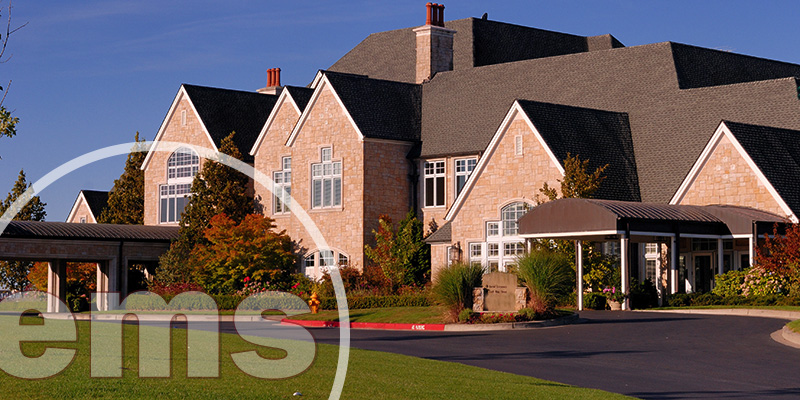In a planned development, residents typically have access to amenities, including the HOA clubhouse. But, should the association open the clubhouse exclusively to members?
Should the HOA Clubhouse and Other Amenities Be Open to the Public?
If you have ever experienced HOA living, then you know that these communities normally come with membership perks. Aside from being provided certain services such as garbage disposal and landscaping, residents can also use one of the many HOA amenities in the community. While no two associations are alike, these amenities usually include swimming pools, fitness centers, and clubhouses.
The question is, though, should HOAs allow the general public to use these amenities?
First of all, opening up the HOA clubhouse and other amenities for public use might not go over well with residents. Having access to exclusive amenities is one of the perks of being a member of an HOA. As such, making such amenities public can harm the reputation of the association.
Secondly, there are certain risks associated with public amenities, particularly in terms of safety. This applies especially to gated HOA communities and condo associations. Many homeowners prefer living in gated communities because they offer more security. When you allow non-members inside to use the amenities, residents might feel less safe. There is also a higher risk of crime.
Finally, when you open amenities to the public, these amenities become public facilities bound by the Americans with Disabilities Act. That means needing to ensure your facilities and amenities meet the architectural requirements for those with disabilities. For many associations, this is a dealbreaker, as compliance costs a lot of money. If your HOA fails to comply, it is at risk of lawsuits and penalties.
Renting Out HOA Amenities
When discussing amenities in an HOA community, it is impossible to skip over the fact that many associations rent out these facilities to earn money. While member dues remain an HOA’s chief source of funds, the rental income amenities brought into the association can’t be ignored. In this case, would it be advisable to rent out the clubhouse and other amenities to outsiders?
 Experts agree that it is best to only rent out your amenities to members of the HOA community. Again, the Americans With Disabilities Act comes into play here.
Experts agree that it is best to only rent out your amenities to members of the HOA community. Again, the Americans With Disabilities Act comes into play here.
When you allow the general public to rent out (i.e. use) your clubhouse, it becomes a place of public accommodation. It then needs to follow the ADA and architectural requirements for persons with disabilities.
On the other hand, a private clubhouse that is only open exclusively to members is not bound by the ADA. This is because they are not recognized as public accommodations.
Creating HOA Clubhouse Rules for Renting
As with many other things, renting out your clubhouse should come with its own set of rules, even if your HOA is only renting it out to members. Establishing rules for renting helps maintain order, keep amenities clean, and protect the association. When coming up with your homeowners association clubhouse rules, don’t forget to consider the following:
1. Determine What Activities Can Take Place
One of the first things you should decide on is what type of activities can take place. Will you allow religious gatherings, political campaign events, and commercial events? Or is the clubhouse only open for holiday parties, reunions, and birthdays?
When you allow more controversial events, you should expect some pushback from some of your members. Not everyone has the same beliefs and opinions, so clashing views will likely come to light.
You should also consider things like special classes or services. For example, will it be okay for the HOA to hold a yoga class in the clubhouse? The problem with this setup is that some bodies may view the clubhouse as a fitness center or gym. In some states, health clubs and gyms have special requirements. If the classes will be open to the public, the ADA will also apply.
2. Prepare an HOA Clubhouse Rental Agreement
Rental agreements help protect all parties involved. For the renter, it covers the rental rate, the extent of use, and other important details. For the HOA, it can serve as a form of liability protection.
People can get injured anywhere, an HOA clubhouse included. Have users sign a liability waiver releasing the association in case of accidents or injury. For events with pool use, it may be helpful to require the hiring of a lifeguard.
3. Charge a Deposit
When it comes to renting, there is always a risk of damage. To ensure protection, the HOA should consider charging a security deposit to renters. In the event of property damage, the security deposit can cover the cost of repairs or maintenance.
4. Impose Parking Rules
For large events with many guests, parking is usually a problem. If your clubhouse area does not have enough parking space, you may want to require valet parking. This way, the event won’t disrupt the community or contribute to traffic.
5. Determine Operating Hours
You can’t have events go on forever. Thus, it is wise to set a timeframe for amenity rentals. If your clubhouse is connected to a swimming pool with separate operating hours, make that clear to users.
6. Maintain Cleanliness
You would think cleaning up after an event is simply common courtesy (or even common sense). But, you would be surprised at how many people leave their rentals in disarray.
As another rule, require users to clean the facility after renting. They should leave the clubhouse in the way they found it. Your HOA can also offer cleaning as part of the rental package for an extra fee.
The Verdict
As you can see, there are certain disadvantages associated with opening the HOA clubhouse and other amenities to outsiders. Still, the decision remains with your homeowners association. Whatever that may be, it is important to lay down the rules for amenity use and renting. That way, your HOA can protect itself from potential liability.
An HOA management company can take care of your community’s amenities and oversee rentals. Call Elite Management Services at (855) 238-8488 to learn more about our services or contact us online to request a proposal.
RELATED ARTICLES:
- Rental Properties In An HOA: How To Handle It?
- What Homeowners Association Pet Restrictions Should Your Board Enforce?
- HOA Violation Enforcement: How Should The HOA Enforce Rules






